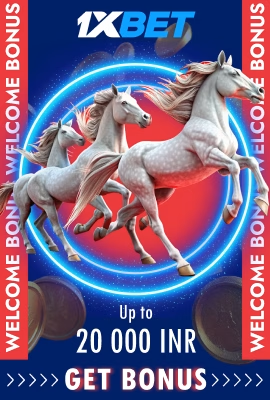Dive into the vibrant history and thrilling events of the Madras Race Club. Discover the challenges it faces and what the future holds for Chennai’s iconic horse racing scene.
Madras Race Club: History, Key Events, and Future of Horse Racing in Chennai
The Madras Race Club‚ pivotal in Tamil Nadu Horse Racing‚ faces uncertainties. Land disputes threaten its legacy‚ impacting Chennai Racing Events. Will it endure?
History and Legacy of the Madras Race Club
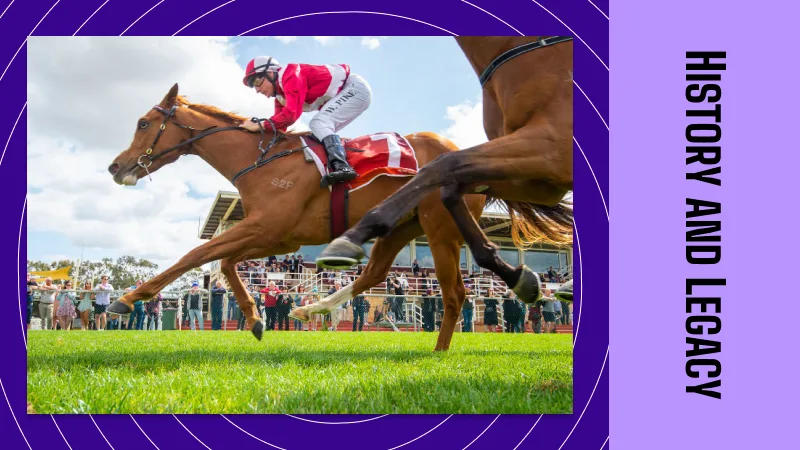
The Madras Race Club stands as a symbol of rich tradition within the Tamil Nadu Horse Racing Culture. Established in 1837‚ it played a pivotal role in shaping Indian Horse Racing Clubs. The club’s inception marked the beginning of organized Chennai Horse Racing‚ quickly becoming a landmark for enthusiasts. Through decades‚ it hosted numerous Chennai Racing Events‚ influencing regional sports culture profoundly. Despite its historical significance‚ the club faced challenges‚ including financial hurdles and societal shifts impacting its operations. Nevertheless‚ the club’s resilience in preserving Madras Race Club History is commendable. Today‚ it remains an emblematic part of Tamil Nadu Horse Racing‚ though recent controversies cast shadows on its enduring legacy. Its future‚ uncertain yet hopeful‚ mirrors the broader journey of horse racing within India.
Establishment and Early Years
The inception of the Madras Race Club in 1837 marked a transformative era for Chennai Horse Racing. Initially‚ it served as a recreational outlet for British officers‚ gradually evolving into a cornerstone of Tamil Nadu Horse Racing Culture. The club’s early years were characterized by exclusive memberships and elite gatherings‚ setting a precedent for organized racing events. Its establishment coincided with the burgeoning popularity of horse racing across India‚ positioning it among the prominent Indian Horse Racing Clubs. As the hub of Horse Racing in Chennai‚ the club fostered a community passionate about equestrian sports. However‚ this exclusivity often meant limited accessibility for locals‚ reflecting broader societal hierarchies. Despite these challenges‚ the early foundation laid by the Madras Race Club significantly influenced the trajectory of regional racing traditions.
Significant Historical Events
The Madras Race Club has witnessed numerous pivotal moments in Tamil Nadu Horse Racing history. In 1946‚ the club’s lease agreement with the British government signified a turning point‚ providing it with land that became central to its operations. This period marked the ascent of Chennai Horse Racing into prominence. During the mid-20th century‚ the club hosted distinguished racing events attracting an elite audience‚ thus embedding itself in India’s cultural fabric. However‚ the club’s journey wasn’t devoid of challenges. Financial crises and administrative shifts tested its resilience‚ compelling adaptations to sustain relevance. Yet‚ it thrived‚ contributing to the broader narrative of Horse Racing in India. These significant historical events underline the club’s enduring impact‚ highlighting its role in shaping regional equestrian sports.
Role in Tamil Nadu Horse Racing Culture
The Madras Race Club has been instrumental in cultivating the Tamil Nadu Horse Racing Culture. As a longstanding institution‚ it has fostered a vibrant community of racing enthusiasts and professionals. The club’s influence extends beyond mere entertainment; it embodies a cultural legacy that intertwines with the social and economic fabric of the region. Through hosting numerous Chennai Racing Events‚ the club has provided a platform for showcasing equine talent and promoting competitive spirit. Its role in mentoring jockeys and trainers underscores its commitment to nurturing local expertise. However‚ criticisms regarding accessibility and elitism persist‚ challenging its inclusive potential. Despite these critiques‚ the Madras Race Club remains a cornerstone of regional identity‚ continuously shaping the traditions and aspirations of Horse Racing in Chennai.
Recent Developments⁚ Madras Race Club and Land Dispute with Tamil Nadu Government
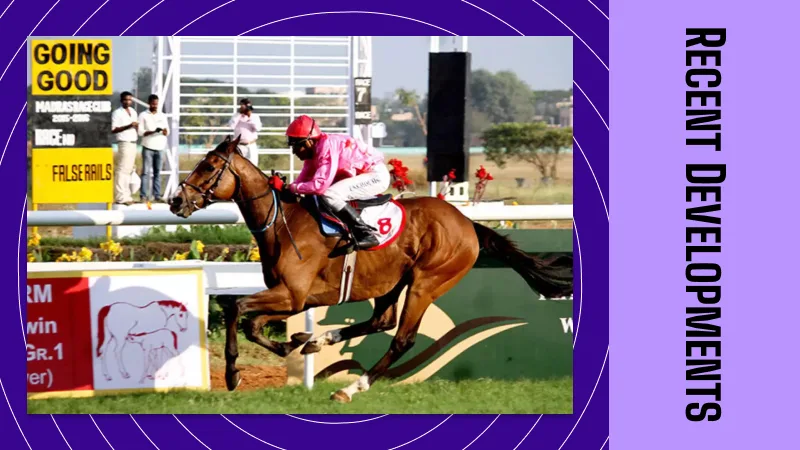
The Madras Race Club faces a significant challenge due to an ongoing land dispute with the Tamil Nadu Government. This conflict has cast uncertainty over its operations‚ threatening its historical legacy. Allegations of unpaid dues and legal ambiguities have led to government intervention‚ raising concerns about potential Madras Race Club Closure. The dispute underscores broader issues of governance and transparency in managing public resources. Critics argue that the government’s actions reflect a larger trend of Tamil Nadu Government Land Reclamation efforts aimed at reclaiming strategic assets. While some advocate for preserving the club’s cultural importance‚ others emphasize accountability and adherence to legal obligations. The outcome of this dispute will likely shape the future landscape of Horse Racing in Tamil Nadu‚ impacting both stakeholders and enthusiasts alike.
Background of the Land Dispute
The Madras Race Club Land Dispute with the Tamil Nadu Government has roots in historical agreements and administrative oversight. Originally‚ the club’s land was leased from the government under terms established decades ago; However‚ recent scrutiny revealed alleged lapses in fulfilling lease obligations‚ including substantial rental arrears‚ prompting the government’s intervention. This move sparked controversy‚ as the club argued that historical precedents and informal arrangements had governed past dealings. The situation escalated into a legal battle‚ with each side presenting conflicting interpretations of the lease terms. Critics of the club argue for greater transparency and accountability‚ while its supporters emphasize preserving an institution integral to Tamil Nadu Horse Racing Culture. As legal proceedings continue‚ this dispute highlights complex dynamics between heritage preservation and regulatory compliance.
Legal Proceedings and Outcomes
The Madras Race Club Legal Battle with the Tamil Nadu Government has been a protracted affair‚ characterized by complex legal maneuvers and public scrutiny. Initially‚ the government sought to reclaim land citing unpaid dues and regulatory non-compliance. The club contested these claims‚ asserting historical agreements and procedural lapses. Courts have intermittently ruled on various aspects‚ often mandating interim measures while deliberating long-term resolutions. These proceedings reflect broader issues of governance‚ land rights‚ and institutional accountability within Tamil Nadu Horse Racing. As both sides present their cases‚ the legal outcomes remain uncertain‚ with potential implications for similar disputes across India. Critics argue that the process underscores inefficiencies in land management policies‚ while advocates for the club emphasize its cultural and historical significance as justification for favorable resolutions.
Impact on Chennai Horse Racing
The ongoing land dispute has significantly disrupted Chennai Horse Racing‚ casting doubts over the future of the Madras Race Club. The uncertainty surrounding its operations has led to a decline in Horse Racing Events Chennai‚ affecting the local economy and diminishing the city’s cultural vibrancy; Stakeholders‚ including jockeys‚ trainers‚ and enthusiasts‚ face unpredictability‚ impacting livelihoods and community morale. Moreover‚ the club’s legal entanglements have diverted attention from enhancing racing facilities and developing talent within the region. This turmoil threatens to alienate potential investors and sponsors critical for sustaining competitive racing seasons. As the dispute lingers‚ the broader implications for Tamil Nadu Horse Racing Culture are profound‚ risking the erosion of traditions cherished by generations and potentially stalling growth in this historic sport.
Key Horse Racing Events and Seasons at the Madras Race Club
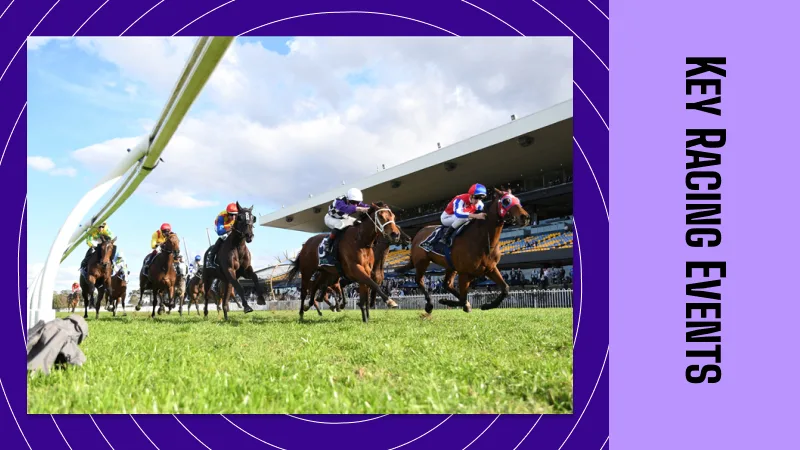
The Madras Race Club has traditionally hosted some of the most anticipated Chennai Racing Events‚ serving as a cornerstone for Tamil Nadu Horse Racing. These events‚ celebrated for their competitive spirit and vibrant atmosphere‚ attract participants and spectators from across India. The club features key racing seasons that align with national calendars‚ offering opportunities for showcasing top-tier equine talent. Historical highlights include prestigious races that have elevated its status within the Indian Horse Racing Clubs community. However‚ recent operational uncertainties due to ongoing disputes have curtailed the scheduling of these events‚ threatening the continuity of beloved racing traditions. As stakeholders navigate these challenges‚ the future of maintaining such high-profile racing seasons remains uncertain‚ impacting both local culture and the broader racing scene in India.
Overview of Major Racing Events
The Madras Race Club has been synonymous with hosting some of India’s most prestigious racing events‚ integral to the Chennai Horse Racing calendar. Key events like the South India Derby and The Guindy Gold Cup attract national attention‚ showcasing exceptional equine talent and competitive prowess. These gatherings not only highlight elite racing but also serve as social spectacles‚ drawing diverse crowds and fostering community. However‚ recent operational disruptions have threatened the regularity and grandeur of these events‚ causing concern among stakeholders. Critics argue that inconsistent scheduling undermines the club’s reputation and diminishes its influence within the broader Tamil Nadu Horse Racing Culture. As the club navigates ongoing challenges‚ sustaining these major racing events remains critical for preserving its historic prestige and economic viability.
Annual Horse Racing Seasons
The Madras Race Club has long been the epicenter of Horse Racing in Tamil Nadu‚ with its annual racing seasons forming a vital part of the regional sporting calendar. These seasons are meticulously planned‚ offering a blend of tradition and excitement that draws both local and international attention. Each season typically spans several months‚ featuring a series of competitive events designed to test the skills of jockeys and the endurance of horses. Despite recent challenges‚ including legal uncertainties and operational disruptions‚ the club strives to maintain these traditions. Critics argue that inconsistencies and lack of clarity about future schedules may erode confidence among participants and enthusiasts. Sustaining these annual horse racing seasons is crucial for preserving the cultural legacy and economic benefits associated with Chennai Racing Events.
Highlights of Recent Chennai Racing Events
Recent Chennai Racing Events at the Madras Race Club have showcased a mix of thrilling races and notable performances‚ despite operational uncertainties. Key highlights include unexpected victories by underdog horses‚ energizing the audience and adding an element of surprise to traditional favorites. The events also featured promising new talent among jockeys‚ demonstrating the evolving competitive landscape of Tamil Nadu Horse Racing. However‚ logistical challenges marred some events‚ leading to criticism regarding event management and planning. Spectators expressed concerns over accessibility and amenities‚ highlighting areas needing improvement to enhance visitor experience. Despite these issues‚ the club’s commitment to maintaining high racing standards was evident. These recent events underline the need for strategic adjustments to sustain interest and uphold the prestigious status of Horse Racing in Chennai.
Membership‚ Facilities‚ and Visitor Information for Madras Race Club
The Madras Race Club Membership offers exclusive access to a range of facilities that enhance the experience of Horse Racing in Chennai. Members enjoy privileges including access to premium seating‚ private lounges‚ and dining options‚ fostering a sense of community among enthusiasts. However‚ critics argue that membership fees and accessibility could be more inclusive‚ potentially limiting the club’s outreach. The facilities‚ while historic‚ are perceived by some as needing modernization to meet contemporary standards. Visitor information is crucial‚ yet current communication channels are often seen as lacking clarity‚ impacting attendance and engagement. As the club navigates its challenges‚ enhancing membership benefits and improving visitor facilities remain pivotal to sustaining its position within Indian Horse Racing Clubs‚ ensuring both tradition and progress coexist harmoniously.
Membership Structure and Benefits
The Madras Race Club Membership is structured to offer varying levels of access and benefits‚ catering to different segments of racing enthusiasts. Members gain exclusive entry to club facilities‚ preferential seating at major events‚ and access to private lounges designed for comfort and networking. Additionally‚ membership provides opportunities for engaging with the vibrant Tamil Nadu Horse Racing Culture. However‚ the current membership model has faced criticism for its perceived exclusivity and high cost‚ potentially alienating broader audiences. Critics argue that a more inclusive approach could foster a larger community and enhance the club’s cultural footprint. While the benefits are attractive‚ they must continually evolve to remain relevant in a competitive landscape‚ ensuring that both new members and long-time supporters find value in their association.
Facilities Offered to Members and Visitors
The Madras Race Club aims to provide a comprehensive experience for both members and visitors through its extensive facilities. These include state-of-the-art stabling areas‚ training tracks‚ and viewing galleries that offer prime vantage points for Chennai Racing Highlights. Members have access to exclusive lounges and dining areas designed for comfort and social interaction‚ enhancing their engagement with the Tamil Nadu Horse Racing Culture. However‚ some critics argue that while the club’s historical charm is undeniable‚ parts of its infrastructure require modernization to meet contemporary expectations. Visitor amenities often face scrutiny concerning accessibility and convenience‚ potentially deterring broader participation. Addressing these concerns by upgrading facilities could significantly enhance the overall visitor experience‚ aligning the club’s offerings with global standards and ensuring sustainability in a competitive environment.
Visitor Experience and Accessibility
The Madras Race Club‚ while a historical gem within the Tamil Nadu Horse Racing landscape‚ faces ongoing challenges in enhancing the visitor experience and ensuring accessibility. Current facilities‚ though rich in legacy‚ often fall short of modern expectations‚ with visitors citing difficulties in navigation and inadequate amenities as persistent issues. The club’s location offers potential for spectacular views and engagement‚ yet logistical inefficiencies can detract from the overall experience; Improved signage‚ transportation links‚ and accommodating infrastructure for all patrons could significantly elevate accessibility. Critics argue that without these critical updates‚ the club risks alienating broader audiences and diminishing its cultural impact. Addressing these gaps is essential for maintaining relevance and appeal‚ ensuring that both local and international visitors enjoy seamless access to Chennai’s premier racing destination.
The Future of Horse Racing in Chennai⁚ Madras Race Club’s Prospects
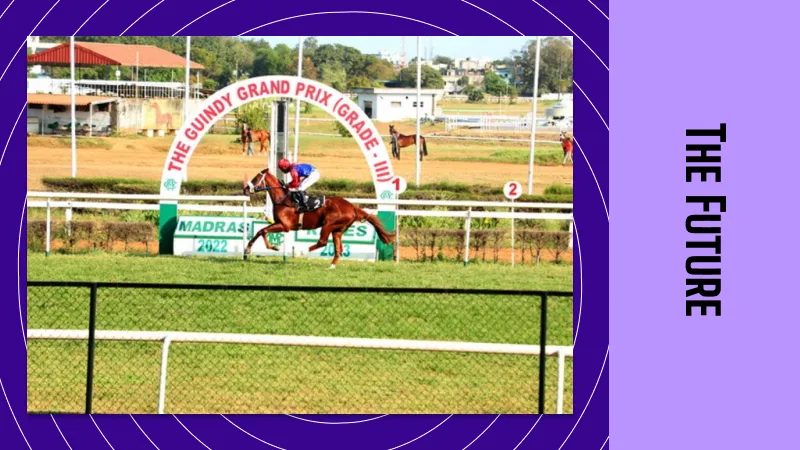
The future of Horse Racing in Chennai through the lens of the Madras Race Club is fraught with both challenges and opportunities. The club’s historical significance and cultural contribution to Tamil Nadu Horse Racing Culture remain undisputed‚ yet ongoing land disputes have cast a shadow over its operations. These legal battles not only threaten its physical existence but also raise questions about governance and sustainability. To thrive‚ the club must innovate‚ embracing digital platforms for wider engagement and transparency. Enhancing infrastructure and broadening its appeal to younger audiences are crucial steps toward revitalizing interest. While uncertainties persist‚ effectively addressing these issues could ensure that the club remains a beacon of equestrian excellence‚ preserving its legacy while adapting to modern demands.
Challenges and Opportunities
The Madras Race Club faces significant challenges that could impede its role in Tamil Nadu Horse Racing. Chief among these is the Madras Race Club Land Dispute‚ which threatens its operational stability and future. Additionally‚ outdated infrastructure and a perceived exclusivity hinder broader public engagement. These challenges‚ if unaddressed‚ might erode the club’s historic influence on Chennai Horse Racing. However‚ opportunities abound for revitalization. Embracing technological advancements can enhance event accessibility and fan engagement‚ while updates to facilities could attract new demographics. Furthermore‚ strategic partnerships and community outreach can broaden its appeal. By addressing these issues proactively‚ the club could not only preserve its legacy but also position itself as a modern leader within Indian Horse Racing Clubs.
Plans for Race Club Reopening
The anticipated Race Club Reopening of the Madras Race Club is marked by strategic initiatives designed to reinvigorate its standing in Chennai Horse Racing. Key plans include modernizing facilities to meet contemporary standards‚ ensuring that both traditional charm and modern convenience coexist. This involves upgrading spectator amenities and enhancing digital platforms for broader engagement. The club aims to address previous criticisms regarding accessibility and inclusivity by implementing transparent communication strategies and community outreach programs. Furthermore‚ partnerships with local businesses and tourism boards are being considered to boost economic impact. Despite ongoing challenges from the Madras Race Club Legal Battle‚ these plans reflect a commitment to restoring the club’s prestige and relevance within the Tamil Nadu Horse Racing Culture‚ paving the way for a sustainable future.
Long-term Prospects for Horse Racing in Chennai
The long-term prospects for Horse Racing in Chennai‚ primarily centered around the Madras Race Club‚ are contingent upon strategic adaptation and innovation. While the club’s historic roots offer a strong foundation‚ future success depends on overcoming current challenges‚ including ongoing land disputes and infrastructural inadequacies. Embracing technological advancements could revolutionize race viewing and betting experiences‚ attracting younger audiences and expanding its reach; A focus on sustainability and collaboration with global racing bodies can enhance its international profile. However‚ if these opportunities are not seized‚ the club risks obsolescence in an evolving industry. By balancing tradition with modernity‚ fostering inclusivity‚ and capitalizing on emerging trends‚ the club can ensure that Tamil Nadu Horse Racing retains its cultural significance and economic vitality.
